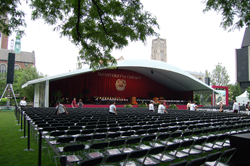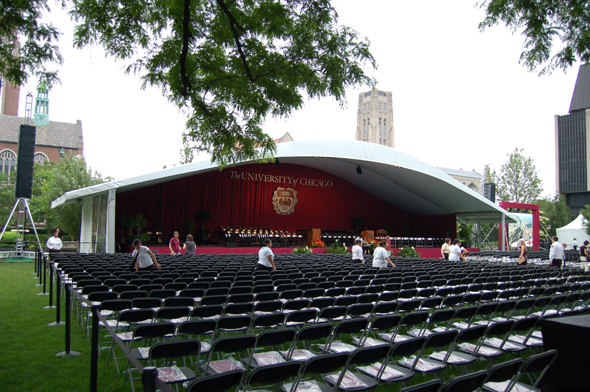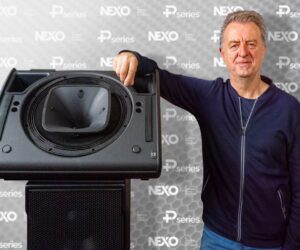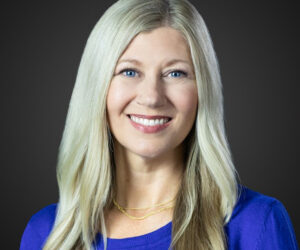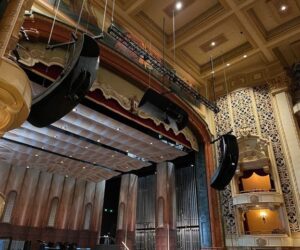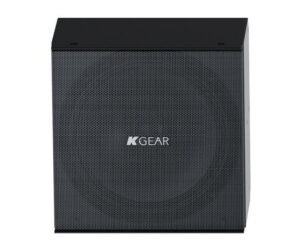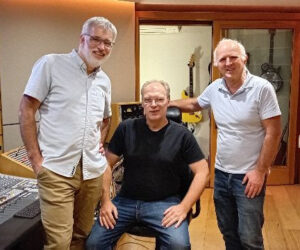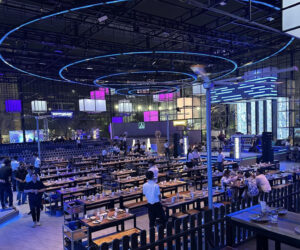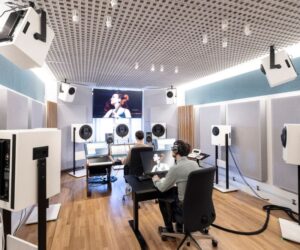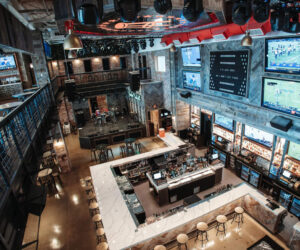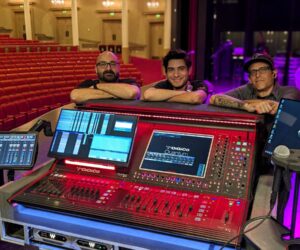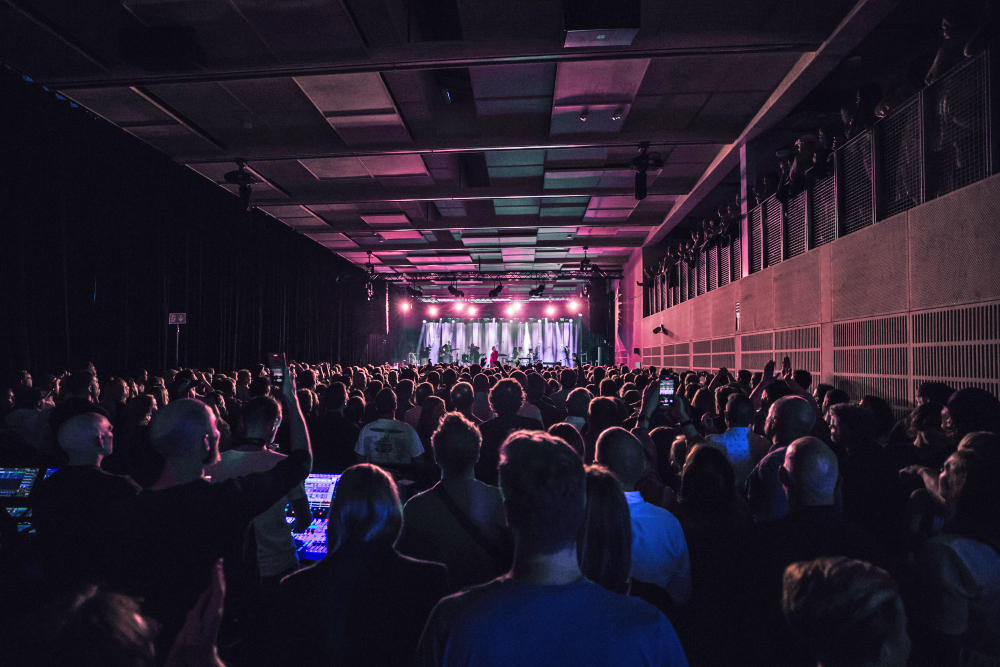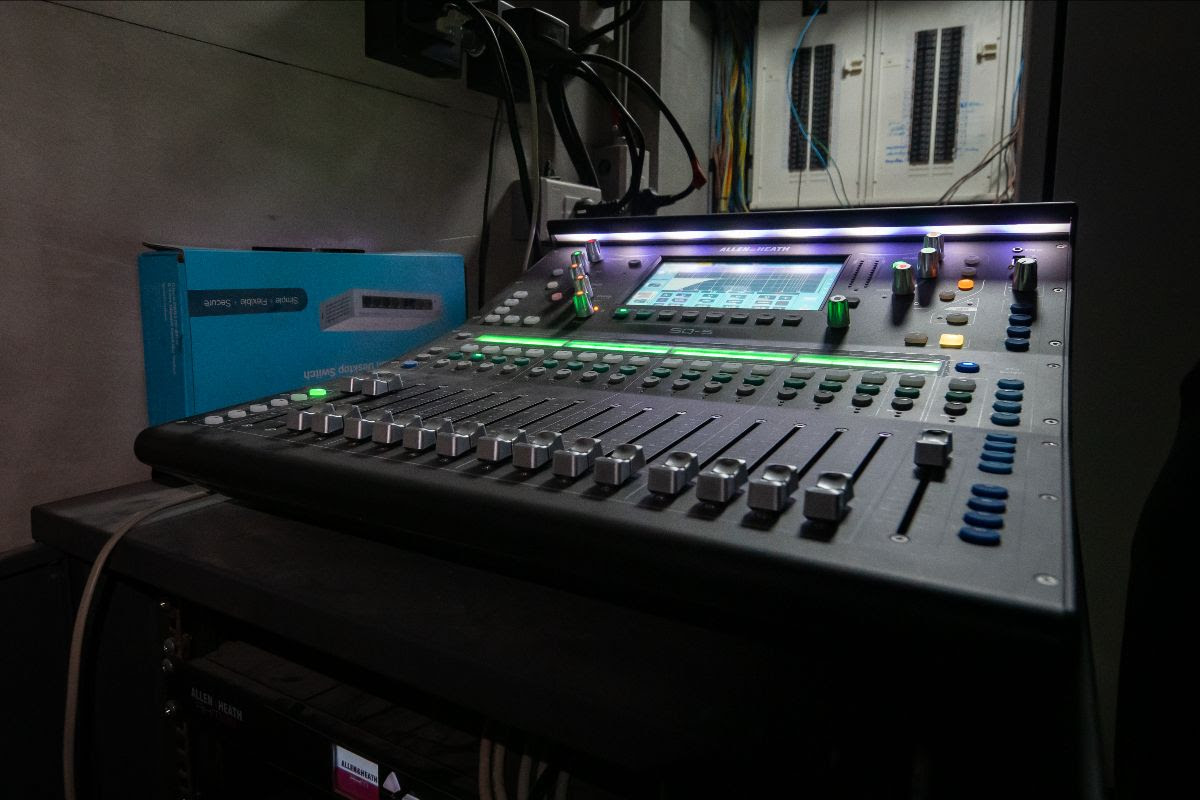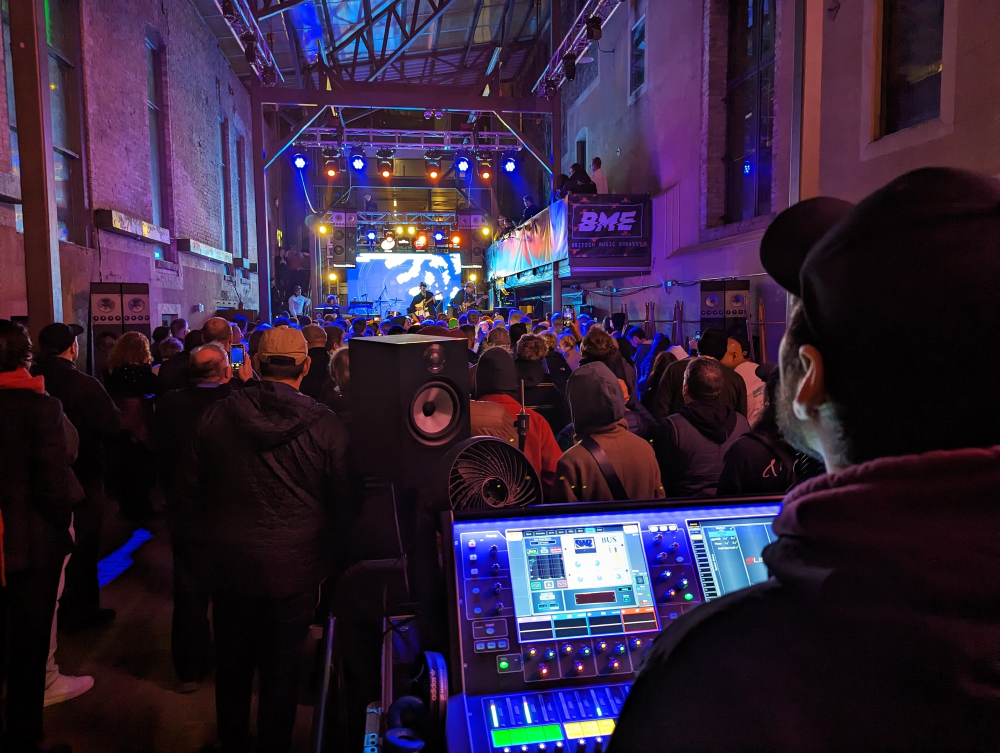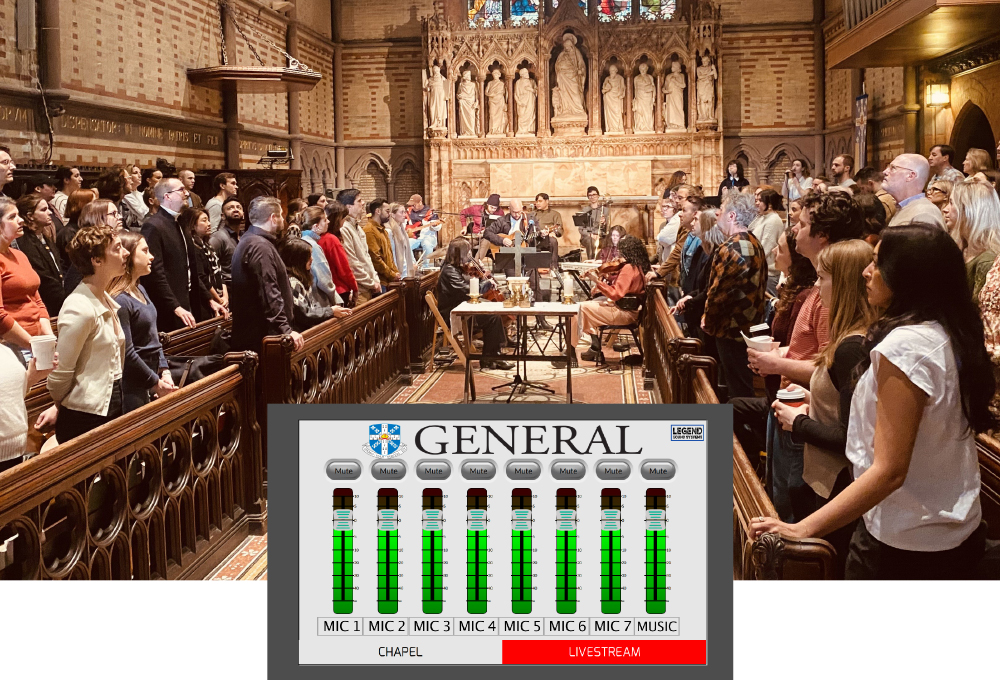The 503rd Spring Convocation Ceremony of the University of Chicago was held in early June with a major change compared to past ceremonies.
For the first time in 90 years, the Convocation was held as a single ceremony for all campus locations, rather than separate ceremonies over three days.
Frost Lighting, an event services company, was the lead contractor for the event and EDGE ShowTek, was hired to supply audio reinforcement for the celebration.
Held outdoors and with an attendance of 25,000, the audio system was entirely a NEXO/Yamaha design and included one of the largest and most elaborate uses of an EtherSound network to date.
“Almost every system we deploy uses EtherSound as the primary distribution network, but none have been quite this large of complex” said Rich Mullen, Principal of EDGE ShowTek.
“Many of the producers and TD’s we work with expect a certain level of technological sophistication and we are one of the few local suppliers within the Yamaha/NEXO family capable of providing that kind of technology.”
Trevor Waller, EDGE ShowTek A1, who was responsible for designing and implementing the EtherSound network said that it was particularly useful because of the lengthy cable runs necessary to run I/O’s through the entire ground site.
“EtherSound allowed us to use a mix of cat5 and fiber,” Waller said. “We used two Yamaha SB168-ES Stage Boxes and ES controlled amp racks to create a fully digital distribution network thereby minimizing the introduction of system noise, allowing ground isolation, and giving us greater flexibility in system management and monitoring from front of house.”
“We were certainly an early adopter of the Yamaha Stage Box system and have found it to be a fantastic solution for what we do. The ES network is rock solid with low latency, which is great for audio signal distribution.”
‘The fact that we can ‘drop in’ a set of I/O’s (via a Yamaha Stage Box) anywhere along the network or anywhere in the venue has been truly revolutionary for us.”
Chief System Designer Pete Hansen made the decision to use 24 NEXO GEO D and 16 GEO S line arrays, eight GEO subs, six NEXO CD12s, 12 NEXO PS10s.
The entire system was driven by NEXO NX242-ES4 processors and all speakers were powered Camco V6 amplifiers with the exception of the GEOD which was powered by Powersoft K10’s.
“Because of the weight to output ratio of all NEXO products, we have a huge advantage of being able to field a larger hang of speakers given the realities of weight restrictions,” said Mullen.
“In the case of the University graduation ceremony, we were able to hang 2×10 GEO D boxes off the main rigging towers. Front fill utilized the balance of the GEOD which were stacked directly on the GEO Subs. All the GEO S delay hangs were rigged from the self-climbing truss structures used for video repeaters.”
“With the incredibly complicated shows that have become our calling card, having the set of tools that Yamaha and NEXO have developed has simultaneously increased the quality of our product and lowered the labor necessary to install and maintain these systems on site.”
EDGE also supplied a Yamaha PM5D-RH digital audio console at front of house as the primary input for the EtherSound network. Waller said the PM5D-RH was chosen for its output capacity and reliability in critical applications.
“We continue to purchase these consoles for their output capacity and reliability in critical applications.”
“To do an event of this size with [only] a handful of XLR’s and/or traditional copper transmission media is really the amazing part,” Mullen added. “Many systems have digital snakes, but the network often stops there.”
“Copper is often used for the drivelines with system control accomplished another way. To have inputs, drive, and system control all through the same network is a huge advantage of the ES network that Yamaha and NEXO have created.”
“It also helps that the network’s protocol has very low latency and is rock solid reliable. A great deal of fiber was required, plus we deployed a ring topology network for redundancy. This was a very cutting-edge deployment of the ES system over a large area.”
“To our knowledge, it is the first time an EtherSound ring network has been deployed. With the network architecture, any single cable in the network could be ‘broken’ without loss of signal. It automatically re-routes to other available paths within the network. Full redundancy!”


